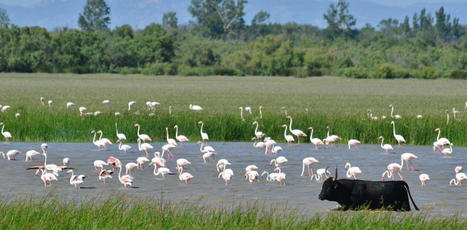La protection des zones humides joue un rôle clé dans l’adaptation des oiseaux au changement climatique. Pourtant, nombre d’entre elles ne sont toujours pas protégées.
Research and publish the best content.
Get Started for FREE
Sign up with Facebook Sign up with X
I don't have a Facebook or a X account
Already have an account: Login
Revue de presse et du net par le Pôle de partage des connaissances S&T de l'Office français de la biodiversité
Curated by
DocBiodiv
 Your new post is loading... Your new post is loading...
 Your new post is loading... Your new post is loading...
|
|











Auteurs : Fabien Verniest @fabien_verniest Chercheur post-doctorant en biologie de la conservation, Muséum national d’histoire naturelle (MNHN) et Isabelle Le Viol Ecologue, biologiste de la conservation, enseignant-chercheur au MNHN @UMR_CESCO
(2023). Anticipating the effects of climate warming and natural habitat conversion on waterbird communities to address protection gaps. Biological Conservation, 279, 109939. https://doi.org/10.1016/j.biocon.2023.109939